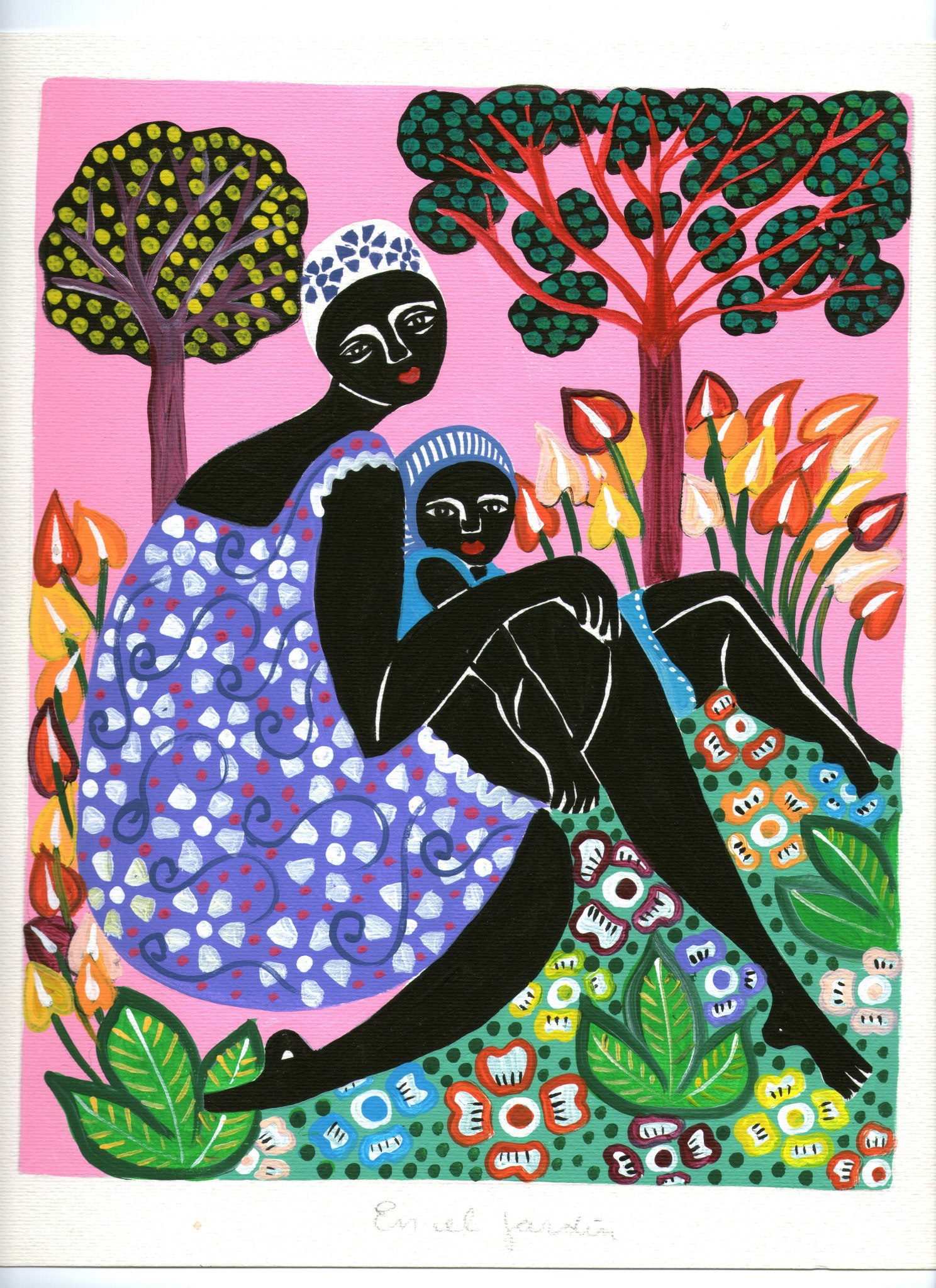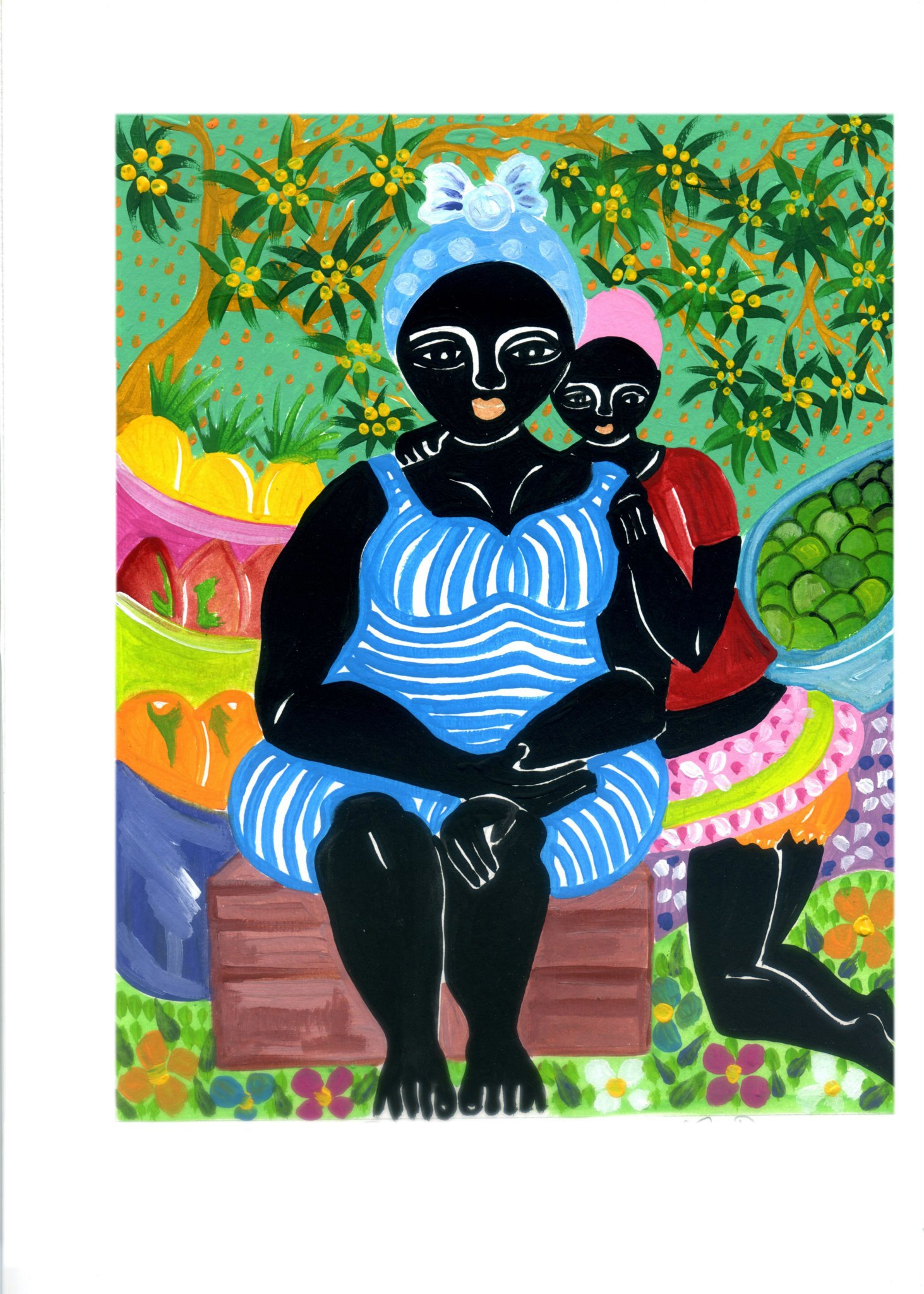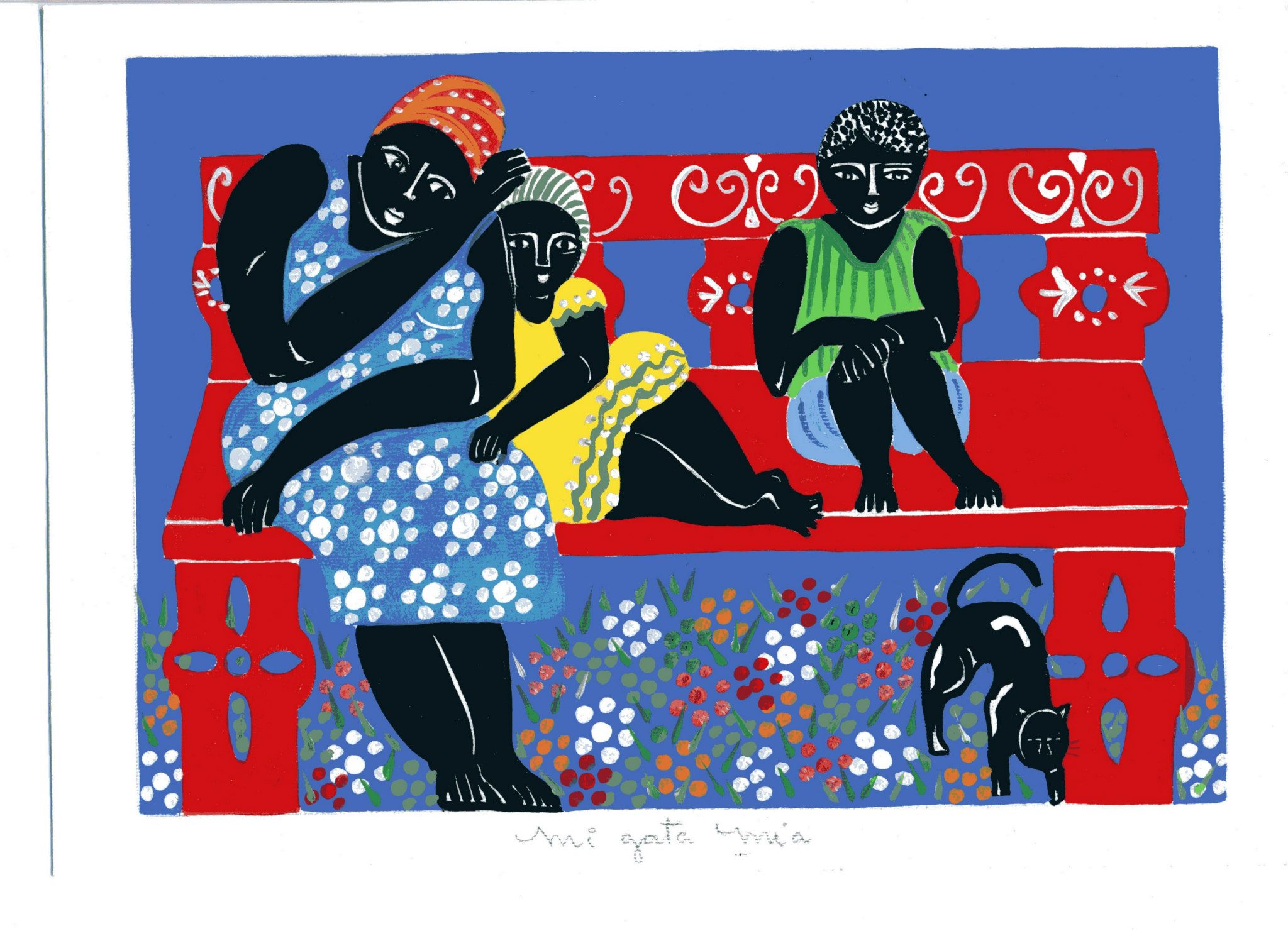Caribbean Folk Art: A Window into a Matriarchal Culture

I live in one of the most beautiful, culturally rich areas of the world - from the nesting turtles on the beaches to the crazy and random barefoot dancing parties in town full of people of every age and color.
In the early years when I first moved to this area, my family and I, every now and then, needed to travel up the coast to "civilization" whether it was to mail a letter, or to do paperwork for our visas - and to do so, we took the public bus.
About an hour into the journey, there was a check point where police with automatic weapons would stop and board the bus, asking each passenger for their identification, sometimes asking questions like "why are you traveling? where are you going?" - similar to immigration check points in the U.S.
These guys were intimidating to say the least, with their heavy combat boots, full uniformed gear complete with bullet proof vests. They were ready for anything! Every now and then, they would remove a person from the bus and take them into what looked like a 60 year old jail cell for interrogation.
Because these stops would take a while, there was a small pop-up "soda" nearby - a stand that sold homemade empanadas and random snacks. This one day as I waited in my seat in the back of the bus, sweating profusely while nursing my baby Nala in the fully packed bus that sat idle in the blazing hot tropical sun - I saw a large, older woman in a front seat call one of the police officers over to the her window. After barking some orders to him, his demeaner shifted and he humbly walked over to the soda, picked up a bottle of hot sauce and brought it over her, repositioning his AK47 to be able to pass the bottle up through the window.
Waiting while she promptly sprinkled the hot sauce on her empanadas, he took back the bottle while she barked some additional orders and took a healthy bite into the pastry. As he returned the hot sauce bottle to the soda, he picked up a frozen plastic bag, a homemade "slushie", and brought it to her as well. Shifting back into police mode - he lifted the weapon back up, on guard, ready for combat.
I've never forgotten this exchange - it seemed so funny to me at the time - and still carries a humorous reminder of those early days. It was a perfect picture of what I realized was the commanding power that these women have within their culture.
They are the mothers of all, the midwives, the cooks, the ones that everyone goes to when they need advice - they are honored, revered and respected in a way that I had never witnessed or been a part of before. They hold their community with authority, wisdom and more than a bit of intimidation! I really love that I've been a part of it for so many years now - thankful to have the modeling as a different way of living - with women in the power seat.
That said, I ran across this artist the other day, Eugenia Barrionuevo – a Costa Rican native who lives near me in the town of Cahuita, on the Caribbean coast of Costa Rica.
Her folk art portrays the people who make up a large part of the community here. Originally sailing from Jamaica seasonally to hunt turtles, they gradually began staying for longer periods of time, eventually settling the area - adding to their turtle hunting the cultivation of coconuts and chocolate. Heirloom, indigenous chocolate - some say the best in the world. In fact, for a good long time, "Semillas" was the currency in this area - cacao seeds - from which chocolate is produced.
Some of the settlers were African, who survived shipwrecks during the slave trade and stayed in the area as free people, living among the indigenous tribes.
In time, others would settle in here too, and gradually the indigenous tribes that had originally lived in the coastal areas, moved up further into the mountains where they are today.
Until the 1980's, these people were not even considered "citizens" of Costa Rica. There was a very distinct separation between the area and the rest of the country. In fact, because a person could not travel through certain areas without official identification (which explains the check point where the incident above occurred), the residents of the Caribbean were relegated to isolation. Nobody came or went. The cultural belief of this area and its residents from others in the country was rooted in racism - basically it was "too dangerous" to ever visit - a belief that still holds to this day for many.
Yet the culture here is gentle, calm and peaceful – with a strong matriarchal influence throughout all aspects of life. Family (really, the whole community is related in one way or another), is honored and members stay close to one another.
Until recently (the 1980’s - the same time the community were finally recognized as citizens and given identification numbers - a time that coincided with when "the road come through", bringing with it electricity, television and public schools), the women here all birthed at home, with the assistance of other women in their family. Sometimes there was a midwife – but from what I was told “the older women cared for the ones when they were having their babies…all the women in the family would help each other”.
I was also told that birth was not a man’s business and that they stayed clear of the birthing space. “They stayed close, but not right in the same room…the babies were all born at home – and when the people died, they died at home too – the family, they laid out the body inside the house, putting herbs on it, for 2-3 days before putting it in the ground. Family and friends would come to the house during those days, bringing food and sitting with the grieving family members.”
In honor of the beautiful way of life here, and in celebration of the long standing tradition of powerful women, I'm happy to have permission from Eugenia to share her paintings -























Thanks for visiting!
Join the waiting list for my upcoming book -
NEST. The Way of Nirvanic Birth.
From Conception to Postpartum, Nest is a Birthkeepers Guide to a Powerful and Peaceful Childbirth Adventure
Stay connected with news and updates!
Join our mailing list to receive the latest news and updates from our team.
Don't worry, your information will not be shared.
We hate SPAM. We will never sell your information, for any reason.
